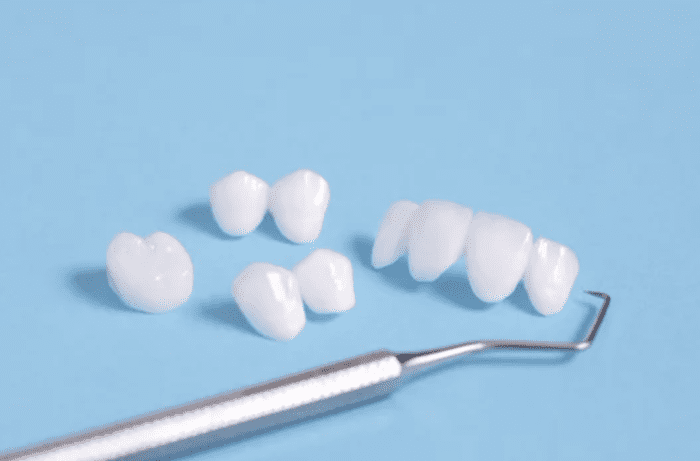Dental veneers are thin porcelain shells that solve a variety of cosmetic issues. You can use dental veneers for teeth whitening, chipped teeth, or other structural problems.
Before getting dental veneers, you should know how to take care of them. Proper care of your veneers can help make them last longer.

Regular Dental Routine
One of the many benefits of dental veneers is that you can continue your regular oral hygiene routine. Porcelain is a strong, durable material for your teeth. Therefore, you can brush and floss them as usual.
It is still important to brush and floss your teeth as recommended. While the porcelain will not decay, the remaining part of your natural teeth will. Additionally, you are still susceptible to gum disease if you do not remove plaque buildup. The plaque will still get under your gum line, causing irritation.
If you want to avoid tooth decay and help your new veneers last longer, keep up with your oral care routine.
Avoid Chewing on Hard Objects
Dental veneers are durable; however, they are still capable of chipping or breaking. You have to be careful not to chew on anything too hard or something that might ruin your veneers.
Chewing a pen may seem like a harmless habit. Unfortunately, you can chip a tooth or a veneer. In addition, many people eat ice as a snack. Alternatively, they may unconsciously chew it after finishing a cold drink. However, ice can break your new veneer.
Another thing that can damage your veneer is hard or sticky. Crunching hard candy can chip or crack your veneer. While sticky candy may not chip your veneer, it is still possible for it to pull the veneer from your tooth.
Don’t Use Abrasives
Porcelain is a durable material, but it is not indestructible. It is possible to scratch their surface. Once you scratch the porcelain, you have damaged the veneer permanently. Scratches make it easier for bacteria to grow and build, spreading throughout your mouth. A higher concentration of bacteria means that you are at an increased risk of developing tooth decay or gum disease.
Therefore, you should avoid using any material that will scratch or damage your veneers. This includes abrasive toothpaste or hard-bristled toothbrushes. Much like your natural teeth, you should use a soft-bristled toothbrush while you clean.
Watch Your Diet
One of the nice things about porcelain veneers is that they do not stain. When you get veneers, you and your dentist must determine what shade you desire. You cannot alter their color after your dentist places them. This is because porcelain is not a material that whitening treatments can change. Porcelain will stay its shade no matter what kind of whitening treatments you use on your teeth.
This property means that you should watch your diet. While the veneer cannot change shades, your natural teeth can. You may want to avoid or limit your intake of foods and drinks that can stain your teeth.
